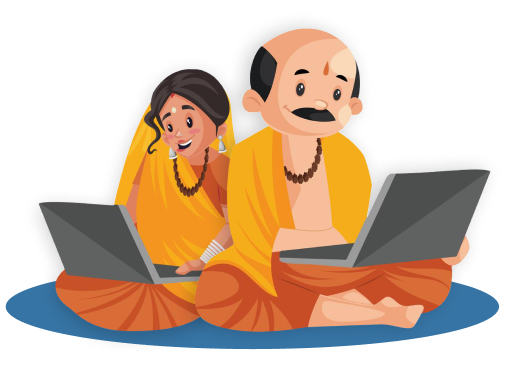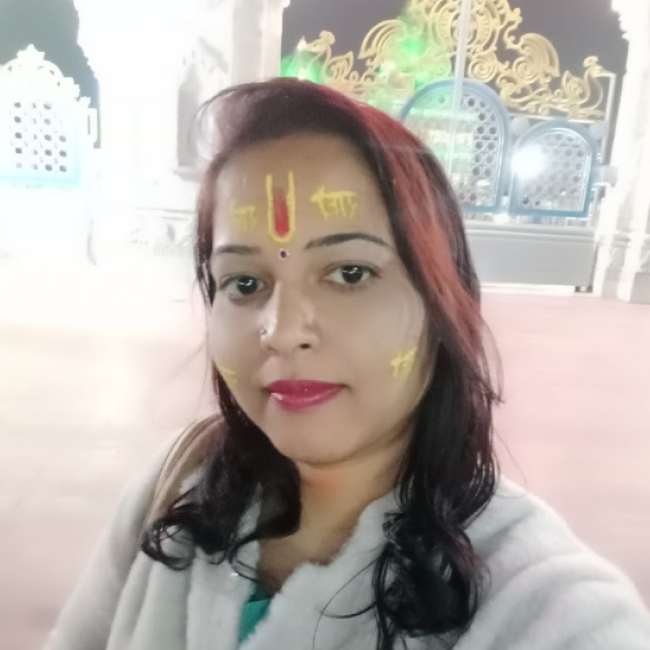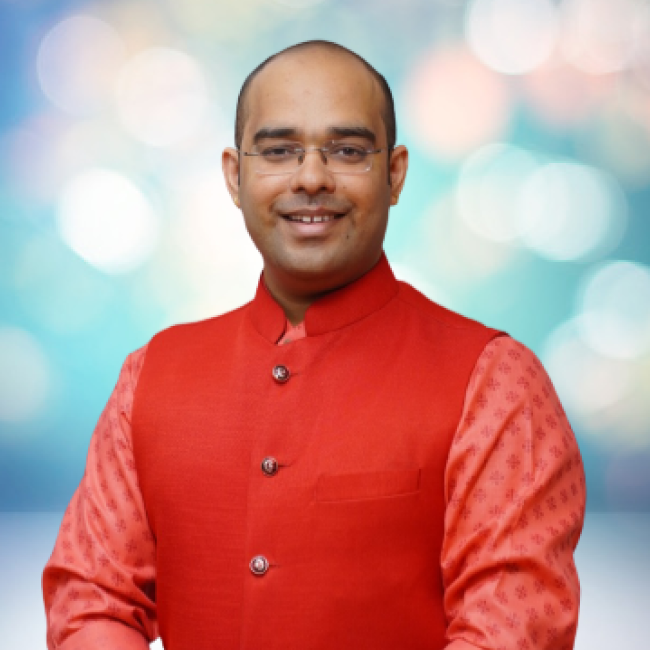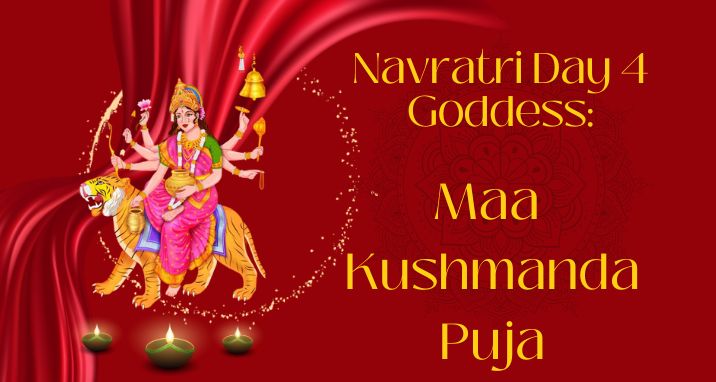Vijaya Ekadashi: Significance, Tithi and Vrat Rituals!

Dedicated to Shri Hari Vishnu, Ekadashi is observed twice every month. The day is the 11th day of the Shukla Paksha (the bright fortnight of the waxing moon) and the Krishna Paksha (the dark fortnight of the waning moon), as per the Hindu lunar calendar. Ekadashi is considered an auspicious day by the Sanatan Hindus. They observe Vrat on the day and worship Shri Hari Vishnu. Ekadashi has been observed by Sanatan Hindu devotees since ancient times to please Bhagwan Vishnu and seek his blessings for a happy and prosperous life.
As per the belief, the day should be spent chanting Bhagwan Vishnu’s name, hearing or reading the Ekadashi Vrat Katha and also staying awake all night singing the praises of their deity.
Vijaya Ekadasi falls on the 11th day of Krishna Paksha or the dark fortnight/waning moon phase of the Hindu month of Phalguna (February-March as per the English calendar). It is also known as Phalguna-Krishna Ekadasi.
Vijaya Ekadashi Dates, Tithi & Parana Time
- Vijaya Ekadashi On Wednesday, March 6, 2024
- On March 7, Parana Time – 01:45 PM to 04:09 PM
- On Parana Day, Hari Vasara End Moment – 09:30 AM
- Ekadashi Tithi Begins – 06:30 AM on Mar 6, 2024
- Ekadashi Tithi Ends – 04:13 AM on Mar 7, 2024
Vijaya Ekadashi Parana
- Vaishnava Vijaya Ekadashi On Thursday, March 7, 2024
- On March 8, Parana Time for Vaishnava Ekadashi – 06:32 AM to 08:57 AM
- On Parana Day, Dwadashi would be over before Sunrise
- Ekadashi Tithi Begins – 06:30 AM on Mar 6, 2024
- Ekadashi Tithi Ends – 04:13 AM on Mar 7, 2024
Those who observe the fast must break it after sunrise on the next day of Ekadashi. It is to be noted that one should break the fast (Parana) within Dwadashi Tithi. The best time to break the fast is pratah kala (morning).
Importance & Significance Of Vijaya Ekadashi
Vijaya means victory or to win. If you observe a complete fast on Vijaya Ekadashi, following all the rituals strictly, you will be successful in your life.
Bhagwan Shri Krishna has repeatedly mentioned to Yudhishtira the importance of observing fast on Ekadashi day and listening to or reading the stories of Ekadasi, which is believed to be equivalent to performing an Ashwamedh Yajna, performed by Hindu kings in ancient times.
- Eliminates all the misdeeds and sins.
- It nullifies all guilty feelings
- Gives clarity of thought.
- Improves spiritual, emotional and intellectual strengths.
Vijaya Ekadashi Story
The story from the Skanda Purana is narrated by Sri Krishna to Yudhishtira. The same story, based on the epic Ramayan, was narrated by Brahma Dev to Devrishi Narad Muni, too.
Bhagwan Ram had to cross the ocean along with his brother Lakshman, Hanuman ji, Sugriva and his entire army of monkeys to reach Lanka to get Mata Sita back from the clutches of Ravana. He understood that crossing the vast and deep ocean was dangerous. So, he asked his brother Lakshman ji to suggest some method by which the entire army could successfully cross the ocean.
On the suggestion of Laxmanji, Bhagwan Ram visited the Rishi Bakadalbhya, who had his ashram on a nearby island. The sage immediately understood that Lord Rama was none other than Shri Hari Vishnu, the Supreme Power of the Universe, and was just playing his role as a human being. Yet Rishi Bakadalbhya asked Shri Ram why he had to approach a mere sage like him. Bhagwan Ra respectfully told him about the challenge of crossing the ocean with his soldiers. Hearing this, Bakadalbhya Muni told Prabhu Ram to observe the auspicious Vijaya Ekadasi, which would ensure the success of crossing the ocean as well as a victory over Ravana. He then explained the rituals to be followed for the Vijaya Ekadasi.
Bhagwan Shri Rama followed the rituals strictly as directed by the sage. He was then able to cross over the ocean with the Vanar Sena (army of monkeys), ultimately defeating Ravana, the King of Lanka. After the win, he brought Mata Sita back with him.
Vijaya Ekadasi Rituals You Must Follow
The rituals of Vijaya Ekadasi are different from the other Ekadasi rituals. Here are the rituals you need to follow:
- The day before Ekadasi, i.e., on the day of Dashami, take a gold, silver, or copper pot. You can also take a clay pot if you do not have a metal pot made of gold, silver or copper. Now fill the pot with water.
- Arrange the mango leaves for decoration on the pot.
- Next, cover the pot and place it in your mandir area or sacred puja room on a mound of seven grains. The seven grains known as Sapta dhan are urad, moong, wheat, gram, barley, rice and millet.
- Then decorate the pot that has been kept with flower garland and sandalwood paste.
- On top of the lid of the pot, place coconut, barley and pomegranate.
- Worship the decorated pot of water by offering flowers, a Ghee Diya (lamp), tulsi leaves, sandalwood paste and Naivedyam.
- Place Panch Pallav (Peepal, Gular, Ashok, Mango and Vat leaves) in the Kalash (pot). Place a golden idol of Lord Sri Narayan Vishnu on top of the lid of the pot where coconuts, etc. are kept.
- Stay awake at night, close to the pot.
- On Vijaya Ekadasi morning, after having a bath, replace the flower garland with a new one and use sandalwood paste to decorate the pot.
- Worship the pot again, like the previous day, by lighting a ghee lamp and offering fruits, incense sticks and flowers, including tulsi leaves dipped in sandalwood paste.
- Offering fruit like pomegranates, coconut and a variety of cooked food as naivedyam.
- Stay awake through the night of Ekadasi. You can spend the night mantra chanting or bhajan.
- The next morning, i.e., on Dwadashi, the pot, along with all that is offered, should be taken to a riverbank or a pond. Worship the post again.
- Then you can donate the pot along with all the ingredients to a Brahmin or Pandit.
- All through the rituals, sing and chant the mantras of Shri Hari Vishnu with complete devotion.
Vijaya Ekadashi Vrat Rules
To get the benefits of fasting on Ekadashi, follow the rules strictly.
- Take a bath in the morning
- Do not consume beans and grains are prohibited from being eaten.
- Avoid harming any animal on this day.
- Do not sleep during the day on Ekadashi, and also the next day on Dwadashi.
- Do not interact with any cheats, frauds or those involved in malicious activity. If, by any chance, one interacts unknowingly, then purify yourself by standing under the sun and looking directly at it.
- Restrain sex on Ekadashi and Dwadashi.
- On Dwadashi (the day after Ekadashi), do not eat in another’s house; have only one meal; honey and urad-dal (black lentil) are not to be consumed; eat on a bell metal plate or cutlery; and do not massage oil on the body.
- On the day of Dwadashi, break the Ekadashi fast with sathvik food.
For more insights into puja and the rituals of Ekadashi, you can talk to a pandit here at NamoAstro.









